‘You needed young people’: how one man nurtured a community on an east Bristol allotment site
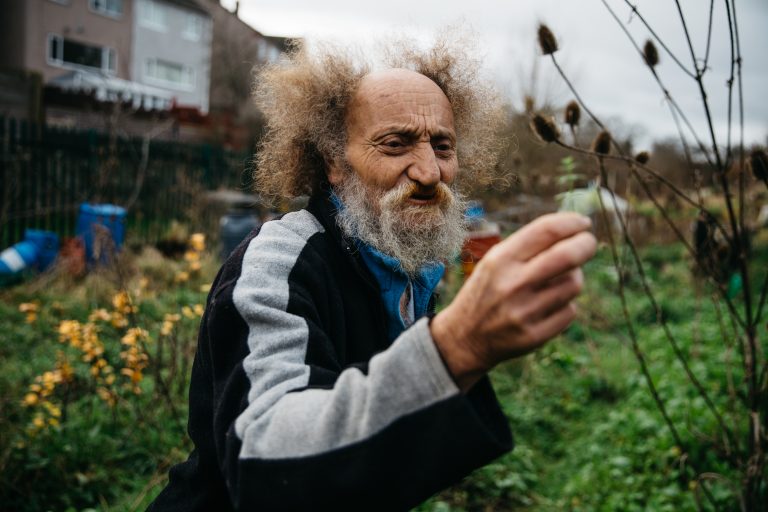
Photos: @alexcarlturner)
“It’s made from cinnamon, ginger [and] fuck knows what [else].” Mike Feingold explains as he places a large pot of mulled cider over an open fire.
He is showing the Cable around the impressive Royate Hill community orchard and allotment site – which he has tended for over a quarter of a century. This land, in the shadow of huge moss-draped viaduct arches, is flourishing and Mike’s presence, spirit of dissent and knowledge, are clearly cherished by the tenants who nurture it.
Even in midwinter, the allotments are full of colour and life. Raised beds embrace determined bunches of rocket, mustard garlic and parsley, while winter apple varieties – “Herefordshire Russet”, Mike points out – stubbornly cling to trees.
Hundreds of years ago, “Easton was built from here”, he explains, with the site’s clay used to make bricks for nearby houses and factories. Later, during the Second World War, the allotments contributed to the country’s Dig for Victory campaign.
Allotments are again booming in Bristol, now one of the hardest places to get one thanks to a resurgent interest in growing local, sustainable food. Late in 2023, Bristol City Council announced that the growing demand meant it needed to raise rents, and introduce new fees and rules – which it put out for a consultation that ends on 31 January. Plotholders are warning that this could mean allotments become a “middle-class luxury”.
Stopping a ‘land grab’
This is in stark contrast to the 1980s, when a globalised food industry meant more of Britons’ fruit and vegetables were being freighted in from abroad, and Royate Hill was neglected. The council considered offers from developers, with the land valued at more than £3.5million, according to Mike.
He had a different vision for the area, which involved him guerilla-planting fruit trees across the site. “If you had a tree and you’ve been looking after it, you still had the right to the fruit [which meant] the developer wouldn’t be able to grab the land,” he says.
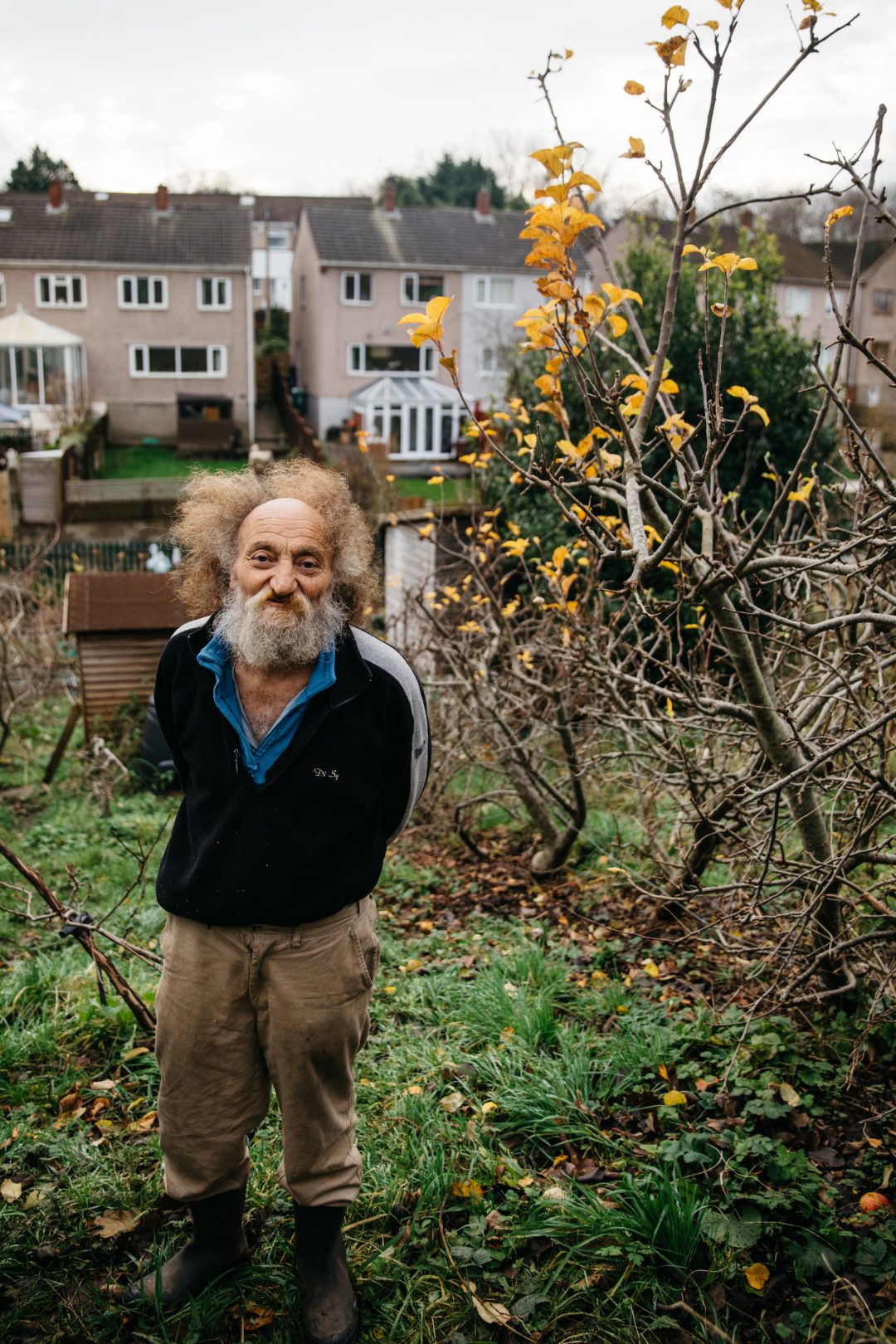
His small act of civil disobedience convinced the council that 80% of the allotments were being used. As a result, developers were eventually told to look elsewhere, and Mike was charged with being the site’s unpaid custodian. When he first got the tenancy “it was about 14 pages long, and every paragraph started with ‘Thou shalt not…’”, Mike claims.
He then got to work, dividing up the allotments among the local population and creating a community orchard from the remaining ones – where he has demonstrated and taught the agricultural philosophy of permaculture ever since.
Permaculture was developed by Australians Bill Mollison and David Holmgrem in the 1970s, a system of growing food and living that centres around “long-term thinking not destroying the soil”, as Mike defines it. “I can’t just take out – I must put back in at least as much [and] preferably more,” he says – and has done so during his decades-long stewardship of Royate Hill.
“One of Mike’s big things has always been about education through hands-on experience,” explains Tim, a volunteer at the orchard for over 15 years. “I know a lot about growing food and managing a small piece of land now.” He highlights the importance of community events hosted by Mike such as apple-pressing days, which attract large crowds and where litres of apple juice are given away. “Royate Hill has always given away what it produces,” Tim adds.
‘A real lifeline’ for mental health
Saffron, another allotmenteer, recalls being given a “huge bag” of butternut squash by a neighbour a couple of plots down after her harvest failed one year.
“Mike has created a lovely community,” she adds, explaining how during lockdown the orchard and neighbouring allotments were a “lifesaver” for a lot of people’s mental health. “We would go down, and people would be stood, socially distanced together, around a fire – that was a real lifeline.”
But plotholders at Royate Hill, as elsewhere, now fear those benefits could be threatened by the council’s planned policy changes, which include both rent hikes and the introduction of a range of new fees.
One proposal would charge sites for holding events, and restrict numbers of people allowed on plots. “The [orchard] would never want to charge for attendance – [it] makes it inaccessible to a lot of people if you have to pay,” Tim says. The council has also proposed rules that would result in hedge removals, extra fees to install ponds, and widespread tree-felling.
Saffron mentions a mature apple tree on her neighbour’s plot. “It gives amazing shade when it’s hot, and [the neighbour] grows shade-loving crops underneath – according to their rules, that would have to go,” she says.
Tim worries about the proposals’ impact on biodiversity and natural habitats. “There are a lot of contradictions between [the council’s] proposals and their so-called declarations in favour of biodiversity, and acknowledgment of climate emergency,” he says. “In the struggle against climate change, we need more allotments, more trees.”
As we prepare to leave Royate Hill, Mike insists we join him round the fire for another mulled cider. When he first took charge of the site, allotments were “the preserve of grumpy old blokes who’d been here since the war”, he says. “You [needed] young people getting involved.”
The many toys, swings and fresh faces at Royate Hill make clear Mike has succeeded in this task. And with Bristolians mobilising to form the ‘Bristol Allotmenteers Resist!’ campaign and a petition against the council’s proposals amassing thousands of signatures, it is clear that today’s plotholders share his determination to fight for their allotments, and the communities they cultivate.



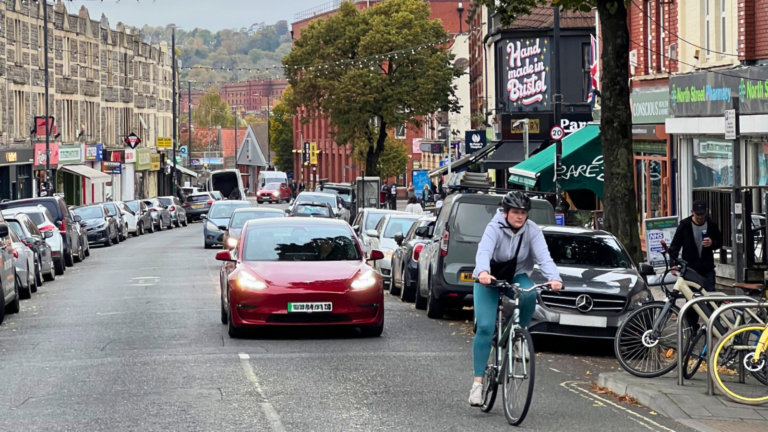

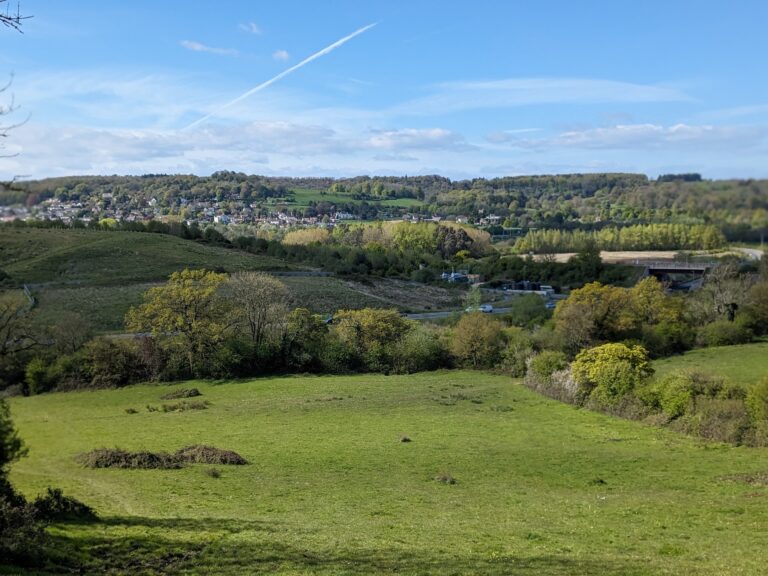





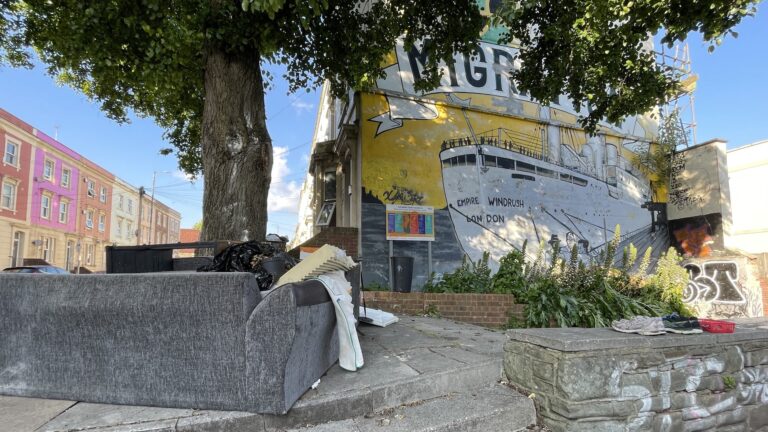
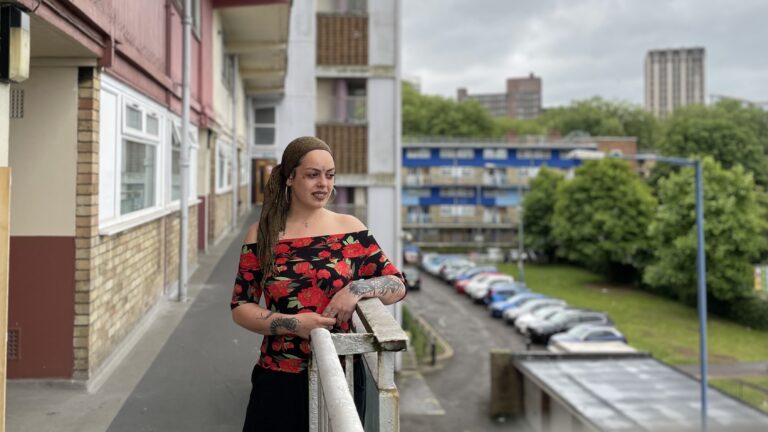

Report a comment. Comments are moderated according to our Comment Policy.
A loud mention – not for Avon Council who did more than a little to preserve Royate Hill – if only BCC would follow this lead.
Allotments do so much good to people’s wellbeing, And should be encouraged and not used as a means to raise money. The trees do so much g ood and it would be criminal to chop them down